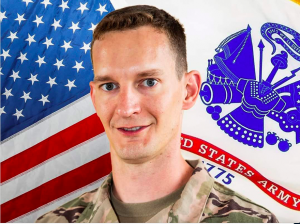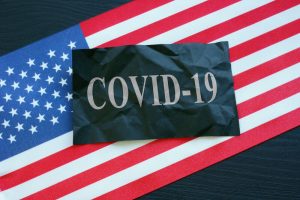 As part of the response to the 2019 Novel Coronavirus (COVID-19), on April 22, 2020, the President issued a Proclamation Suspending Entry of Immigrants Who Present Risk to the U.S. Labor Market During the Economic Recovery Following the COVID-19 Outbreak (the “Proclamation”). The Proclamation, which is effective April 23, 2020, for a period of sixty (60) days, does significantly impact immigration for many individuals currently outside of the United States and seeking entry into the country on a permanent basis. Nevertheless, the Proclamation also has many exceptions, and it appears likely that the Proclamation will not ultimately prevent the majority of individuals seeking lawful permanent residency in the United States from obtaining green cards.
As part of the response to the 2019 Novel Coronavirus (COVID-19), on April 22, 2020, the President issued a Proclamation Suspending Entry of Immigrants Who Present Risk to the U.S. Labor Market During the Economic Recovery Following the COVID-19 Outbreak (the “Proclamation”). The Proclamation, which is effective April 23, 2020, for a period of sixty (60) days, does significantly impact immigration for many individuals currently outside of the United States and seeking entry into the country on a permanent basis. Nevertheless, the Proclamation also has many exceptions, and it appears likely that the Proclamation will not ultimately prevent the majority of individuals seeking lawful permanent residency in the United States from obtaining green cards.
Generally, the Proclamation suspends and limits the entry of individuals who are not United States citizens or lawful permanent residents into the United States. Importantly, however, the Proclamation only applies to individuals who: (1) are outside the United States on April 23, 2020; (2) do not have an immigrant visa that is valid on April 23, 2020; and (3) do not have an official travel document other than a visa (i.e., an advance parole document, re-entry permit, or other official travel document) that is valid on April 23, 2020, or issued on any date after April 23, 2020, and permits the individual to travel to the United States and seek entry or admission.
Moreover, the general suspension and limitation on entry contained in the Proclamation has several exceptions and does not apply to several categories of individuals. Individuals falling within any of these exceptions will not be denied entry into the United States as immigrants due to the Proclamation. Specifically, the Proclamation does not apply to individuals falling into any of the following categories: (1) any lawful permanent resident of the United States; (2) any individual seeking to enter the United States on an immigrant visa as a physician, nurse, or other healthcare professional, or to perform work essential to combating or recovering from the COVID-19 outbreak (including any spouse and unmarried children under 21 years old of any such individual(s)); (3) any individual applying for an EB-5 Investor Visa; (4) any individual who is the spouse of a United States citizen; (5) any individual who is a child of a United States citizen and under the age of 21; and (6) any member of the United States Armed Forces and any spouse and children of a member of the United States Armed Forces. In addition, the Proclamation contains exceptions for certain individuals designated by the Secretary of State or the Secretary of Homeland Security as being important to the furtherance of certain law enforcement objectives or whose entry would be in the national interest.

 Cole Law Group Blog
Cole Law Group Blog















 VA disability law can be daunting for many eligible veterans who want to submit a VA disability claim or wish to appeal a negative disability determination. One of the main concepts that is difficult for service members to understand is which injuries or illnesses VA disability will cover. The answer is “only those disabilities that the applicant can prove are service connected.”
VA disability law can be daunting for many eligible veterans who want to submit a VA disability claim or wish to appeal a negative disability determination. One of the main concepts that is difficult for service members to understand is which injuries or illnesses VA disability will cover. The answer is “only those disabilities that the applicant can prove are service connected.” Approximately 60% of Americans are said to die “intestate”.1 Simply put, this means that the deceased individual (i.e. the “decedent”) did not create a legally valid and enforceable will during his or her lifetime. Nevertheless, the decedent’s estate must be distributed in some manner. In general, most state intestacy laws favor a decedent’s spouse first, then children, followed by parents, and more remote relatives.
Approximately 60% of Americans are said to die “intestate”.1 Simply put, this means that the deceased individual (i.e. the “decedent”) did not create a legally valid and enforceable will during his or her lifetime. Nevertheless, the decedent’s estate must be distributed in some manner. In general, most state intestacy laws favor a decedent’s spouse first, then children, followed by parents, and more remote relatives.
 Many service members understand the frustration of being wrongfully denied disability compensation from the Veterans Administration. In my experience I have observed veterans who became frustrated with the process and ultimately gave up. This is most unfortunate. If you have suffered an injury or illness due to your military service, you should be compensated under federal law. However, the failure of many service members to understand the VA system can cause self-inflicted problems.
Many service members understand the frustration of being wrongfully denied disability compensation from the Veterans Administration. In my experience I have observed veterans who became frustrated with the process and ultimately gave up. This is most unfortunate. If you have suffered an injury or illness due to your military service, you should be compensated under federal law. However, the failure of many service members to understand the VA system can cause self-inflicted problems.
 Divorce Law Basics
Divorce Law Basics As part of the response to the 2019 Novel Coronavirus (COVID-19), on April 22, 2020, the President issued a Proclamation Suspending Entry of Immigrants Who Present Risk to the U.S. Labor Market During the Economic Recovery Following the COVID-19 Outbreak (the “Proclamation”). The Proclamation, which is effective April 23, 2020, for a period of sixty (60) days, does significantly impact immigration for many individuals currently outside of the United States and seeking entry into the country on a permanent basis. Nevertheless, the Proclamation also has many exceptions, and it appears likely that the Proclamation will not ultimately prevent the majority of individuals seeking lawful permanent residency in the United States from obtaining green cards.
As part of the response to the 2019 Novel Coronavirus (COVID-19), on April 22, 2020, the President issued a Proclamation Suspending Entry of Immigrants Who Present Risk to the U.S. Labor Market During the Economic Recovery Following the COVID-19 Outbreak (the “Proclamation”). The Proclamation, which is effective April 23, 2020, for a period of sixty (60) days, does significantly impact immigration for many individuals currently outside of the United States and seeking entry into the country on a permanent basis. Nevertheless, the Proclamation also has many exceptions, and it appears likely that the Proclamation will not ultimately prevent the majority of individuals seeking lawful permanent residency in the United States from obtaining green cards.  Discovery is the formal pre-trial process through which each party in a civil lawsuit may discover legal evidence and facts about the case from the opposing party or parties and witnesses. In Tennessee, discovery is governed by the Tennessee Rules of Civil Procedure and, in many cases, by local rules as well. The general scope of discovery is quite broad. “Parties may obtain discovery regarding any matter, not privileged, which is relevant to the subject matter involved in the pending action…”1 Both Plaintiffs and Defendants should use the discovery process in an effort to prove their claims and defenses and disprove the claims and defenses of the opposing party. The court may limit discovery in certain circumstances.2
Discovery is the formal pre-trial process through which each party in a civil lawsuit may discover legal evidence and facts about the case from the opposing party or parties and witnesses. In Tennessee, discovery is governed by the Tennessee Rules of Civil Procedure and, in many cases, by local rules as well. The general scope of discovery is quite broad. “Parties may obtain discovery regarding any matter, not privileged, which is relevant to the subject matter involved in the pending action…”1 Both Plaintiffs and Defendants should use the discovery process in an effort to prove their claims and defenses and disprove the claims and defenses of the opposing party. The court may limit discovery in certain circumstances.2